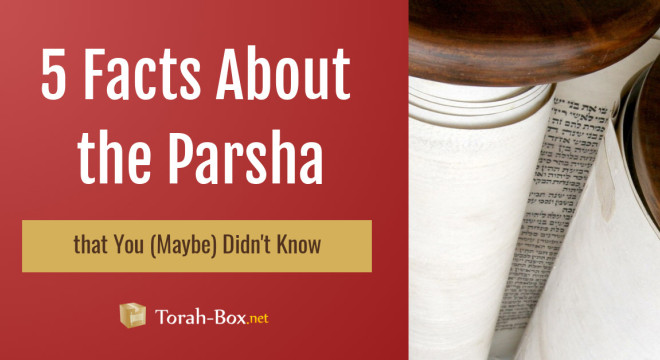
Vayikra
5 Facts About Parshat Vayikra that You (Maybe) Didn’t Know
Discover and learn every week, "5 Facts" written on the weekly Parshah that you can share at your Shabbos table.
וַיִּקְרָ֖א אֶל־מֹשֶׁ֑ה וַיְדַבֵּ֤ר יְהוָה֙ אֵלָ֔יו מֵאֹ֥הֶל מוֹעֵ֖ד לֵאמֹֽר׃ (1:1)
The LORD called to Moses and spoke to him from the Tent of Meeting, saying:
1. Who heard Hashem’s voice?
Hashem’s loud voice was miraculously only heard by Moshe and no one else. (Rashi, Torat Cohanim 2:7-9, Tanchuma Vayikra 1)
2. Why the small letter alef?
The small alef teaches us that Moshe when writing the Torah and in his humility, originally intended to write in a similar manner “vayikar/to call,”, just as is written when Hashem appeared to Bilaam (Numbers 23:16). But Hashem did not agree and told him to keep the letter alef as vayikra. So humble was Moshe, that he indeed wrote it as commanded, but in small font. (Baal Haturim)
אִם־עֹלָ֤ה קָרְבָּנוֹ֙ מִן־הַבָּקָ֔ר זָכָ֥ר תָּמִ֖ים יַקְרִיבֶ֑נּוּ אֶל־פֶּ֝תַח אֹ֤הֶל מוֹעֵד֙ יַקְרִ֣יב אֹת֔וֹ לִרְצֹנ֖וֹ לִפְנֵ֥י יְהוָֽה׃ (1:3)
If his offering is a burnt offering from the herd, he shall make his offering a male without blemish. He shall bring it to the entrance of the Tent of Meeting, for acceptance in his behalf before the LORD.
3. How far did the scent of the incenses and perfumes spread?
Incenses and perfumes burned day and night. The scent would spread throughout Jerusalem to the point that no bride ever needed to use perfume. (Yoma 39b)
וְהֵסִ֥יר אֶת־מֻרְאָת֖וֹ בְּנֹצָתָ֑הּ וְהִשְׁלִ֨יךְ אֹתָ֜הּ אֵ֤צֶל הַמִּזְבֵּ֙חַ֙ קֵ֔דְמָה אֶל־מְק֖וֹם הַדָּֽשֶׁן׃ (1:16)
He shall remove its crop with its contents, and cast it into the place of the ashes, at the east side of the altar.
4. How were the ashes disposed of in the Temple?
All ashes were removed daily and brought to the floor of the courtyard on the east side of the ramp leading up to the Altar. The ashes would be miraculously “swallowed up” there. This included the ashes of the different altars and the Menorah. . (Rashi, Yoma 21b)
וְהָיָה֮ כִּֽי־יֶחֱטָ֣א וְאָשֵׁם֒ וְהֵשִׁ֨יב אֶת־הַגְּזֵלָ֜ה אֲשֶׁ֣ר גָּזָ֗ל א֤וֹ אֶת־הָעֹ֙שֶׁק֙ אֲשֶׁ֣ר עָשָׁ֔ק א֚וֹ אֶת־הַפִּקָּד֔וֹן אֲשֶׁ֥ר הָפְקַ֖ד אִתּ֑וֹ א֥וֹ אֶת־הָאֲבֵדָ֖ה אֲשֶׁ֥ר מָצָֽא׃ (5:23)
When one has thus sinned and, realizing his guilt, would restore that which he got through robbery or fraud, or the deposit that was entrusted to him, or the lost thing that he found.
5. How does a thief must reimburse an item which he intrinsically modified?
We learn from here that if a stolen item has been unrecognizably changed then the thief may keep the item and merely pay the value of the raw material he stole. (Baba Kamma 66a, 93b)
Torah-Box.net Account
To access the entire Torah-Box.net website, sign up for free in less than a minute.
Weekly Parsha
 Candle Lighting - New York
Candle Lighting - New York
Friday February 13th, 2026 at 17:10 *Shabbat ends at 18:12 *
change my location
* Times given as an indication, check the times of your community











